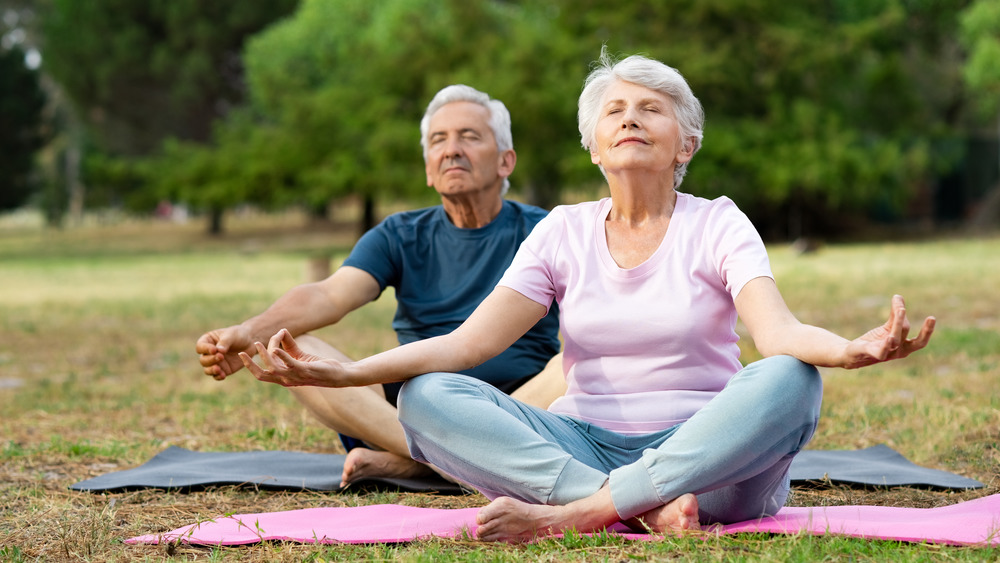Mouth Breathing Is Worse For Your Health Than You Think
Breathing is a natural function, but as it turns out, there is a "right" way to do it. Although your respiratory needs vary based on activity, you should try to avoid breathing through your mouth whenever possible.
According to Healthline, every person has two passages for air to travel to their lungs — the nose and the mouth. While breathing through the mouth is necessary when the nasal passages are blocked, the mouth simply isn't designed to process air the same way that the nose is.
When you breathe through your nose, the air that passes through is warmed before it gets to your lungs. Moisture is added, which reduces dryness in the bronchial tubes and lungs. It also helps to maintain the lung's elasticity by creating resistance in the airflow. Those tiny hairs in your nose help filter out airborne irritants and particles (like pollen) as well.
Breathing through the nose also improves your body's ability to absorb oxygen. That's because the nose produces nitric oxide, which encourages blood vessels to dilate and promotes the body's ability to transport oxygen throughout the body.
What's the downside of mouth breathing?
Although human beings evolved to breathe most effectively through our noses (via Cleveland Clinic), many of us have developed the habit of breathing through our mouths. Mouth breathing is associated with dry mouth, brain fog, irritability, and daytime sleepiness. It can also result in health issues like halitosis, gum disease, throat and ear infections, and sleep disorders. A study published in Acta Oto-Laryngologica indicated that breathing with your mouth open may reduce the efficiency of the upper airway muscles, increasing the likelihood of collapse.
It may take some work to retrain yourself to breathe properly through your nose, but the potential health benefits are profound. If you're engaging in strenuous exercise like running, you can use a combination of both breathing styles to maximize your oxygen intake while protecting your lungs (via VerywellFit). Mind-body practices like yoga and Pilates can help you learn breath control and increase your lung capacity.


